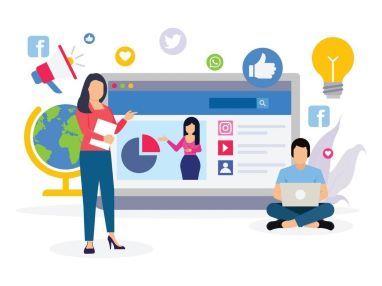SOCIAL MEDIA AND POLITICS
- Class of 2027

Generations have always been shaped by society and many aspire to lead it. Some seek to set an example, while others treat politics as a business. Yet, life moves forward and so do technological advances. With social media and tech giants like Facebook and Google, communication has become inevitable. While people remain curious about their own lives, politicians find it a very interesting medium to test their luck in elections.

Online and opinion polls are greatly simplified with the help of these media, giving instant results, they make it very convenient to hold polls across the spectrum. We have to accept that these can be easily manipulated and can mislead a lot of people. Social media makes it very comfortable to amalgamate technology with society, it is equally important to know that social spheres like politics are always marred by controversies and are not easy to navigate. In the end, it’s still just marketing - no different than the posters they stick outside to campaign.

Countries like ours are still in their infancy, but developed countries have already adopted social media for their execution of elections. Although voting is still official in almost all countries, it certainly cannot be cast openly on social media, but the analysis and impact of such events can be easily tracked through pre-poll surveys.
Ultimately, social media has changed communication and political participation, but it is a two-edged sword. It provides opportunities for information, campaigning, and polling the public, but it also carries risks of misinformation. As technology advances, individuals must engage with online content to ensure social media supports informed decision making rather than haphazard influence, yet social media should be actively included in politics.
